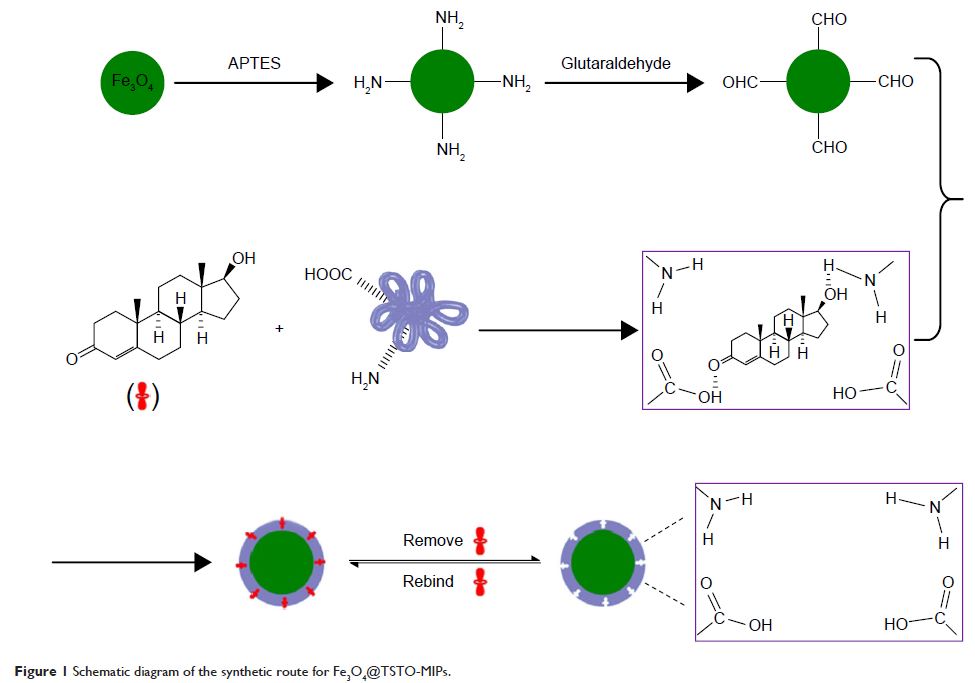109568
论文已发表
注册即可获取德孚的最新动态
IF 收录期刊
- 3.4 Breast Cancer (Dove Med Press)
- 3.2 Clin Epidemiol
- 2.6 Cancer Manag Res
- 2.9 Infect Drug Resist
- 3.7 Clin Interv Aging
- 5.1 Drug Des Dev Ther
- 3.1 Int J Chronic Obstr
- 6.6 Int J Nanomed
- 2.6 Int J Women's Health
- 2.9 Neuropsych Dis Treat
- 2.8 OncoTargets Ther
- 2.0 Patient Prefer Adher
- 2.2 Ther Clin Risk Manag
- 2.5 J Pain Res
- 3.0 Diabet Metab Synd Ob
- 3.2 Psychol Res Behav Ma
- 3.4 Nat Sci Sleep
- 1.8 Pharmgenomics Pers Med
- 2.0 Risk Manag Healthc Policy
- 4.1 J Inflamm Res
- 2.0 Int J Gen Med
- 3.4 J Hepatocell Carcinoma
- 3.0 J Asthma Allergy
- 2.2 Clin Cosmet Investig Dermatol
- 2.4 J Multidiscip Healthc

合成具有优异生物相容性的磁性分子印迹聚合物,用于对前列腺癌细胞中的睾酮选择性分离和抑制
Authors Tang X, Li F, Jia J, Yang C, Liu W, Jin B, Wang X, Gao R, He D, Guo P
Received 22 January 2017
Accepted for publication 16 March 2017
Published 12 April 2017 Volume 2017:12 Pages 2979—2993
DOI https://doi.org/10.2147/IJN.S133009
Checked for plagiarism Yes
Review by Single-blind
Peer reviewers approved by Dr Lakshmi Kiran Chelluri
Peer reviewer comments 3
Editor who approved publication: Dr Linlin Sun
Purpose: Androgen
plays an important role in the progression of prostate cancer. In the present
study, novel magnetic molecularly imprinted polymers (MMIPs) with good
biocompatibility were produced for the selective separation and inhibition of
testosterone in prostate cancer cells.
Materials and methods: MMIPs were prepared by using magnetic nanospheres,
gelatin, and testosterone as the supporting materials, functional monomer, and
the template molecule, respectively. The characterization of the resultant
products was investigated by transmission electron microscopy, X-ray
diffraction, and vibrating sample magnetometry. To test whether MMIPs can
remove testosterone in biologic samples, human LNCaP (androgen-dependent) and
C4-2 (androgen-independent) prostate cancer cells were selected as cell models.
The translocation of androgen receptor (AR) was detected by immunofluorescence
assay, and the expression of PSA mRNA was detected by real-time quantitative
polymerase chain reaction analysis. Cell flow cytometry analysis was performed
to detect cell cycle arrest.
Results: The synthesized nanomaterials (MMIPs) possessed high
crystallinity, satisfactory superparamagnetic properties, and uniform imprinted
shell, and exhibited high adsorption capacity, fast kinetics, and high
selectivity for testosterone. Moreover, the obtained imprinted nanomaterials
could selectively enrich and detect testosterone in the LNCaP cell samples as a
solid-phase extractant coupled with high-performance liquid chromatography. In
addition, the MMIPs could freely enter prostate cancer cells and suppress the
translocation of AR into the cell nucleus. We further found that MMIPs
inhibited upregulation of AR downstream target genes in LNCaP and C4-2 cells;
also, MMIPs inhibited cell growth and induced obvious cell cycle arrest in
androgen-dependent LNCaP cells, but had no obvious effect on
androgen-independent C4-2 cells.
Conclusion: Our results indicate that the obtained imprinted
nanomaterials can specifically and effectively bind testosterone and recover it
from prostate cancer cells. Moreover, the MMIPs can freely enter prostate
cancer cells and block the activation of testosterone-AR pathway. Thus, the
MMIPs may be a new option for antiandrogen therapy in prostate cancer.
Keywords: magnetic separation, solid-phase
extraction, testosterone, prostate cancer, androgen deprivation therapy,
androgen receptor
